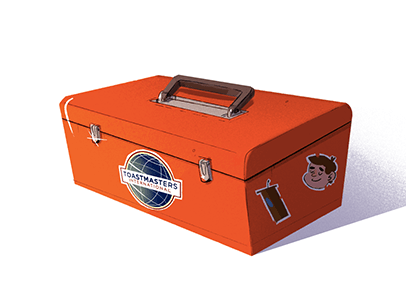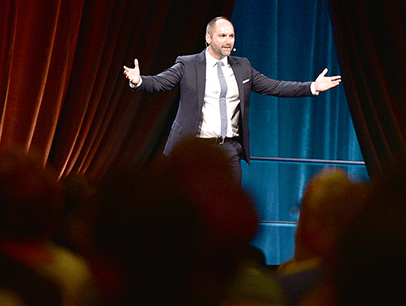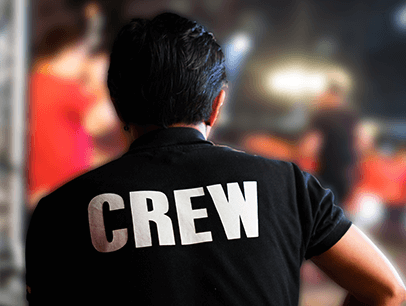
Toastmasters offers the opportunity to learn and grow in speech contests every year. Options range from the International Speech Contest to Table Topics® to Evaluations to Tall Tales to Humor.
In 2021, I won my District German Speech Contest; and my fellow International Lunchtime Toastmasters-ILTM member Maria Issartel came in first and second, respectively, in the International Speech Contest at the club level in 2019 and 2020. Santhiago Vieira of Zuriberg Toastmasters Club in Zurich, Switzerland, who competed for the first time this year, signed up for three contests: Table Topics, Tall Tales, and the International Speech Contest, where he reached the Division level. The three of us discussed the benefits and lessons learned when participating in a contest, no matter the level of experience.
Bonin: What was it like participating in and preparing for a Toastmasters speech contest?
Issartel: The first time [in 2019], I was so overexcited, I changed my speech on the way to the contest! The second time, I lost to a competitor who was clearly better prepared than I was. That really drove home the lesson that preparation is all that matters. Last time I had to give an important speech, I rehearsed four to five times every night and recorded myself on video dozens of times. The more I practice, the less nervous I am.
Vieira: I started to record myself rehearsing right after my Ice Breaker, and I have never looked back. It’s an extremely effective way to improve your delivery skills (body language, vocal variety, movement, etc.), as well as your content. It’s unbelievable how my speeches changed for the better with every iteration, from level to level. I wrote up to seven versions of each contest speech, and each was an improvement on the last one. At some point, for example, I cut back on the number of props I had intended to use. I realized they weren’t necessary to get my message across. The final touches came thanks to a special feedback session that a member of my club offered a few days before the contest.
“More stage time means more practice, more practice means more confidence, more confidence means less anxiety.”
–Santhiago VieiraBonin: I like to start with my preparation as early as possible. I’ve learned how valuable it can be to line up many different test audiences and to improve your content and performance incrementally. Also, beware of last-minute changes! Chances are you are better off delivering the version of your speech that you’ve rehearsed, even if it is not perfect.
Bonin: I thought it was exciting to speak to a different, larger audience. How did that make you feel, were you nervous?
Issartel: If there is just one person in the room with whom what I say resonates, that is good enough for me. And the chance of that happening increases with a larger audience!
Vieira: I think that speaking in front of a larger, unfamiliar audience offers a fantastic learning opportunity. The more I speak, the more I am able to keep my adrenaline under control. More stage time means more practice; more practice means more confidence; more confidence means less anxiety.
Bonin: It’s so important to check your tech [especially when your audience is larger]. We’ve all seen our share of dim video and poor audio. Online or offline, you have to put a lot of effort into the staging of your speech, practicing your gestures, how to incorporate your props, improving your lighting, your technical setup, etc.
Bonin: I felt that the contest really celebrated how international and diverse our organization is. Our District, 109, incorporates 10 European countries and vastly different cultural backgrounds. Many participants weren’t competing in their first language.
Issartel: When you realize that parts of your audience may have trouble understanding all that you are saying, it can force you to double down on your body language, facial expressions, and overall expressiveness. It’s an extra incentive to make your speech interesting in spite of potential language or cultural barriers.
Bonin: What other benefits did you take away from participating in a contest?
Vieira: When you really work on a speech over a long period of time, you put everything under a magnifying glass: from big bloopers, such as gestures that don’t make sense, to distracting props to more fine-grained details, such as word choice. With every iteration, I got more selective with my vocabulary. I paid more attention to how the language flows, how different parts of the speech connect, and I started using rhetorical devices such as alliteration. This polishing process is a very valuable skill that I will transfer to the future. Also, the confidence I gained as a speaker is something that will stay with me forever.
Bonin: Were you disappointed when you didn’t make it to the next level?
Issartel: Yes! It made me even more eager to compete again next season!
Vieira: Not at all. It was never about winning for me, but about improving. And I did learn so much! Next time, I will find a mentor specifically for the contest preparation. (Somebody who isn’t involved in the contest as a judge or chair, of course.)
Bonin: Do you have any other tips for your fellow Toastmasters?
Issartel: Don’t force [participating in a contest] if you don’t feel ready, but don’t put it off because you fear you are too much of a beginner.
Vieira: First, have a clear vision for your speech. It helps you to be effective and to filter out any feedback that might not align with your vision.
Secondly, analyze your feedback. I organized mine into categories: feedback on me as a speaker versus feedback on my speech, contradicting advice, etc. I thought it through and then incorporated some while rejecting others.
“Don’t force it if you don’t feel ready, but don’t put it off because you fear you are too much of a beginner.”
–Maria IssartelThirdly, have a strong why for competing—besides winning. When it’s all about winning, the odds are against you, so you are setting yourself up for disappointment. But if you have other good reasons to compete, such as learning or stage time with new audiences, that’s something achievable.
Bonin: I was impressed at how much a club can do to support their members—had my President not nominated me [to compete], I would never have signed up, much less won! Then, some fellow Toastmasters offered a feedback session to the participants which was incredibly helpful. And Maria got inspired to conduct a Table Topics session in our club where everyone was encouraged to speak their native language.
Last but not least, don’t forget to celebrate. Anyone doing well in a contest can serve as inspiration for members of your own club to try the same next time!
Watch this exclusive video interview with 2021 World Champion of Public Speaking Verity Price, DTM, to learn more about her journey to the virtual stage.

Sonja Bonin works as a writer, editor, and translator in Zurich, Switzerland. She’s a member of Zuriberg Toastmasters Club and the International Lunchtime Toastmasters, both in Zurich.
Related Articles

Speech Contest Tips
Succeeding in a Speech Contest

Communication
The True Value of Speech Contests

Presentation Skills



 Previous
Previous
 Previous Article
Previous Article